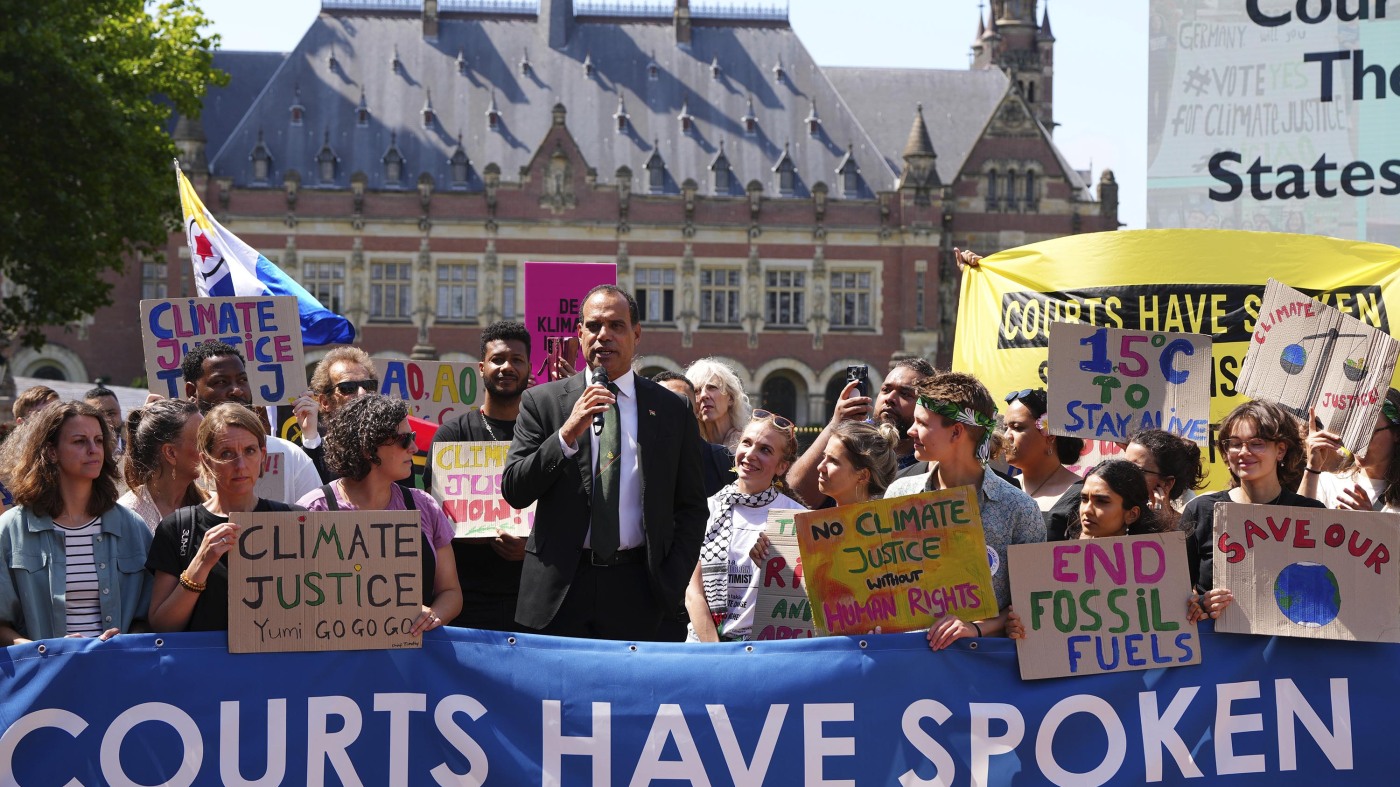The International Court of Justice (ICJ) recently made a significant ruling regarding climate change. It determined that countries must take action under international law to limit climate change. This means that nations that don’t act could be held responsible for climate damages in other places.
This decision is a major victory for smaller nations, especially those vulnerable to climate impacts. Countries like Vanuatu, which has been at the forefront of advocating for stronger international action, see this ruling as a step in the right direction, even though it is advisory and not legally binding.
Maria Antonia Tigre, a climate litigation expert at Columbia Law School, stated that this ruling could energize climate justice efforts worldwide. The case explored whether nations have an obligation to address climate change and the consequences for failing to do so. In her words, “It will create a new wave of climate litigation.”
Vanuatu has been vocal about the risks it faces from rising sea levels and severe cyclones. Experts estimate that sea levels have risen about 8 inches since the Industrial Revolution and are accelerating. For countries with populations like Vanuatu’s 300,000, the threat is existential. The nation produces a tiny fraction of global carbon emissions, while countries like the U.S. and China contribute the most.
During the hearings, Vanuatu argued that international laws should protect both the environment and human rights. The ICJ agreed, stating nations must take steps to protect the climate system. If they fail, they might be liable for specific damages linked to climate change—a legal perspective made possible by advancements in climate science.
Historically, small island nations have faced the brunt of climate change, despite contributing little to the problem. The ruling is seen as validation of their plight by nearly 100 involved countries.
The case may also influence other ongoing climate change lawsuits across the globe. Recent statistics show that similar cases have been successful in places like the Netherlands. For instance, a Dutch court ruled the government must reduce its greenhouse gas emissions, setting a precedent that could be amplified by the ICJ ruling.
As the world moves forward, smaller countries hope this decision will lead to more robust international climate negotiations. Activists like Vishal Prasad believe it sends a powerful message of hope, energizing efforts to combat climate change.
The ICJ’s ruling might reshape future climate talks and the approach countries take towards their environmental responsibilities. Although challenges remain, the determination of vulnerable nations could pave the way for transformative change in how the world handles climate change.
For more insights into climate legislation and actions, check out this Comprehensive Climate Report.


















![Cambodia Unveils Bold Climate Action Plan: Aiming for Carbon Neutrality by [Year] Cambodia Unveils Bold Climate Action Plan: Aiming for Carbon Neutrality by [Year]](https://i1.wp.com/cdn.pixabay.com/photo/2022/01/05/12/57/plant-6917093_960_720.jpg?w=480&resize=480,480&ssl=1)

